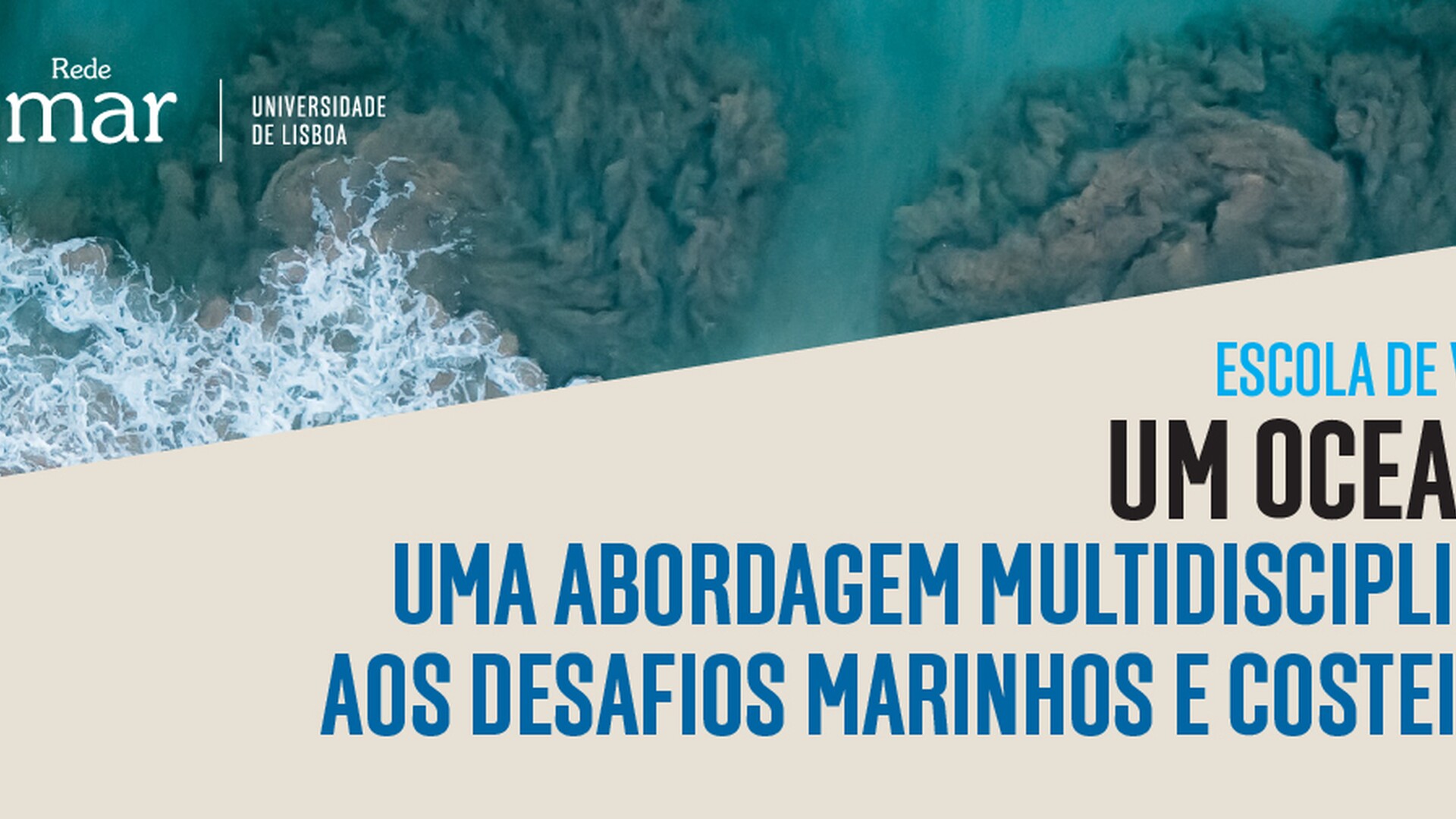From June 1st to June 15th, applications to the " RedeMAR ULisboa Summer School 2023" are open!
REDE MAR ULisboa Summer School 2023 | Applications from June 1st to June 15th

What are the key concepts for addressing today’s marine and coastal challenges?
These daunting challenges require not only outstanding basic science research and analytical skills, but also the soft capacities of empathy and self-reflection that come from recognizing the plurality of human experience across time and space. As we stand at the brink of a radical change, driven by an ecological and social crisis, any implementation strategies will need to encompass different knowledge domains and call for the collaboration of multiple actors.
This can be achieved through an integrated transdisciplinary approach to learning, teaching and mentoring, based on individual disciplines, but with researchers from different fields working side by side in a truly vibrant and synergistic environment. Bringing together people with different expertise, the redeMAR ULisboa acts as instigator, incubator and integrator of ideas, knowledge and creative problem-solving related to the world’s oceans and coastal areas. The redeMAR ULisboa Summer School: "One Ocean: a multidisciplinary approach to marine and coastal challenges", offers therefore a unique moment to combine your talents with the resources of this ambitious group in a shared brainstorming experience about our common possible futures and to contribute to the development of knowledge-based solutions to face threats and create opportunities.
This way, we welcome undergraduate students from both international and national backgrounds who are eager to explore the current challenges of our Ocean from ecological, technological, societal, historical, and several other perspectives, regardless of their base area of knowledge or nationality. Graduate students are also invited, but their attendance will be subject to availability.
The course will run from the 3rd to 7th of July and will cost 250€.
Brief decription of each module
- School of Arts and Humanities: Telling stories of sea, sand and people: Combining history, archaeology and traditional ecological knowledge to look at the past and think about the future;
- Faculty of Law: Preparing an international legal framework for sea level rise: coping with climate change, rearranging state territory and searching for mechanisms to deal with conflicts;
- IST Técnico Lisboa:
- Blue Economy: Living and non-living Marine Resources and Renewables Energy;
- Marine Robotics: from Technology to Science and Ocean Literacy (@Expo'98 Testing Site for Surface and Underwater Robots);
- Institute of Geography and Spatial Planning: Marine and Coastal Risks (sea level rise, tsunami and coastal erosion): main drivers, dynamics and impacts on the mainland Portuguese coastal systems and communities;
- Faculty of Sciences: Marine biodiversity – pollution and climate change as the main challenges to marine biodiversity conservation, and blue carbon as a potential solution to sustain ecosystem functions and limit biodiversity loss;
- Institute of Education: Ocean literacy - The multidimensional concept of ocean literacy, the different dimensions involved and how it could be promoted and assessed; Some examples of projects and resources focused on the promotion of ocean literacy;
- Institute of Social Sciences: Ocean nexus – As coastal states expand their territories into the ocean, the ocean expands its waters onto the land due to sea level rise, challenging the increasing urban and human occupation of coastal land. Which strategies and knowledge are at stake in the ocean-land nexus?
- Faculty of Sciences e School of Arts and Humanities:
- Visit to Cresmina Dunes (Guincho)
- Visit to Marine biodiversity in intertidal rocky shores
- Visit the Maritime Museum Rei D. Carlos
ULISBOA NEWS
Para que esteja sempre a par das atividades da ULisboa, nós levamos as notícias mais relevantes até ao seu email. Subscreva!





